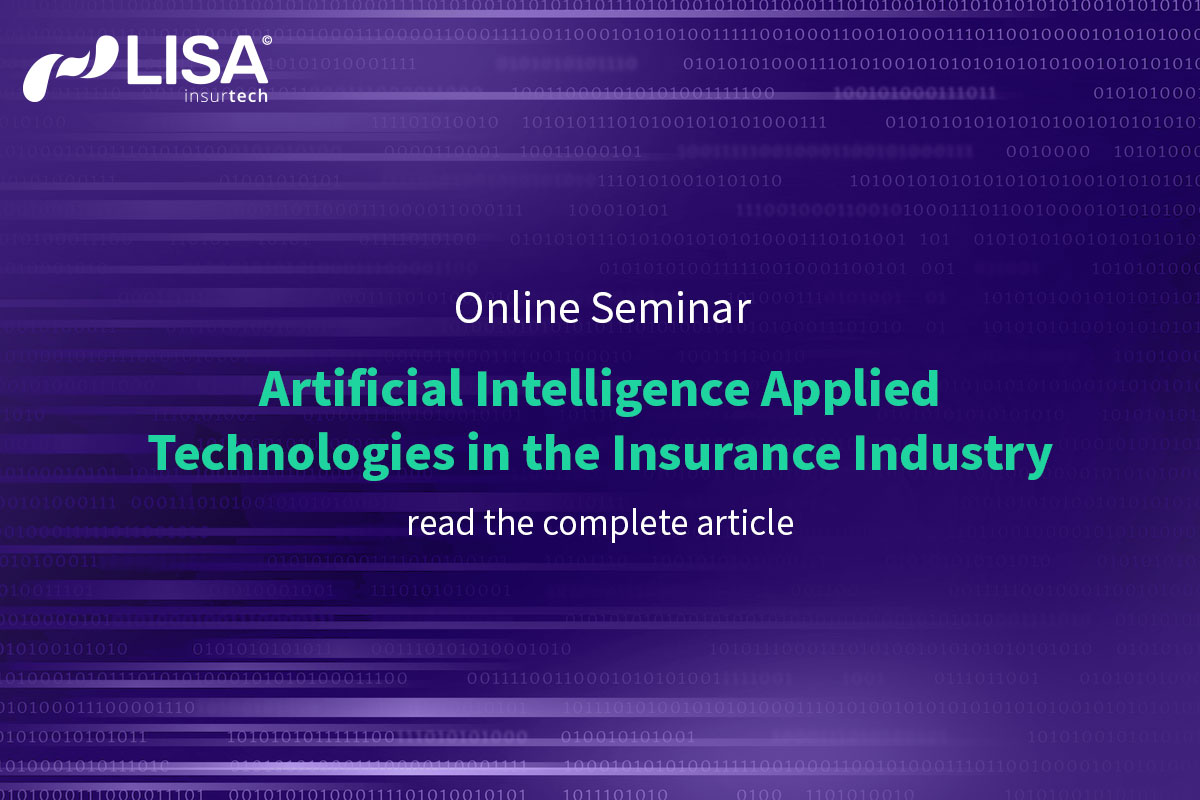On April 25th I was invited to join the “Seminar on Artificial Intelligence Applied Technologies in the Insurance Industry”, together with two speakers: Adel Abed, from FID Seguros and Héctor Monje, from Microsoft.
This event was organized by InsurteChile and the Pontificia Universidad Católica de Chile. Its purpose was to explore Artificial Intelligence, delving into the benefits and applications within the insurance industry.
Although you might think that Artificial Intelligence is a recent concept, the truth is that it dates back to 1956 and is based on analytical techniques and the combination of algorithms in machines that can have the ability to resemble human intelligence.
It should be noted that while AI has been around for a long time, the mathematical models did not have the same scope as they do today due to the availability of data. Also, previously this technology did not have such a «sexy» name as it does now: Artificial Intelligence.
This progressive evolution of technology has led insurance industries to evolve from being robust and complex (like a medieval warrior), to being agile and accurate.
The digital era was a key element for insurers, one of the most traditional and conservative industries in existence, to decide to transform themselves with the help of insurtechs. This with the aim of improving their processes and, ultimately, offering a unique service to their policyholders.
Uses of Artificial Intelligence in the Insurance Industry
Today it is possible to see the application of artificial intelligence in practically the entire value chain of insurers:
- Price optimization.
- Competitor pricing.
- Churn (Cox survival).
- Life time value for customers and brokers.
- Conversion and renewal probability.
- Automatic claims provisions.
- Data governance and unique reporting.
- Segmentation of clients and brokers.
- Xsell and Upsell probability.
- Chatbots and SpeechBots for self-care and service.
- Fraud prediction and detection (text and image analysis in inspections, social networks).
- Parameterized insurance (gives way to indemnity by weather thresholds).
What is the impact of AI on LISA Insurtech?
LISA Insurtech was born precisely in the search to help insurance carriers accelerate their claims processes in an automated way with Artificial Intelligence. Through LISA Claims we are in charge of catalyzing the efficiency of insurance processes that are usually robust and complex. The idea is to streamline them, reduce costs and ensure that the customer, at the moment of truth (at the time of enforcing their policy after a claim), is really satisfied.
We achieve this through text and image recognition combined with a mathematical model to make the insurance process efficient. A more agile, faster and lighter process.
How do we operate?
The documentation that is entered into our core feeds our database at all times and our Artificial Intelligence with Natural Language Processing (NLP) is present there:
- We identify the type of documentation.
- We recognize what data you need.
- We distinguish what you need to retrieve.
- We feed the database (helps us to make future decisions).
Our AI trainings are scalable and allow us to provide a timely response to our customers.
What do you achieve with the application of AI?
- Ability to make agile and automatic decisions.
- Efficient use of resources and better data quality.
- Certainty in quick responses and timely attention.
The AI and the challenges behind
- How digitized are companies? This will make it more or less difficult to follow through with the transformation.
- Understanding and managing expectations: Step by step so that the implementation can be cemented and, over time, transformed.
- Conviction: Ask yourself: Are you really ready to transform the industry?
Before ending this article, i would like to thank InsurteChile and the Pontificia Universidad Católica de Chile for being generators of this type of spaces so important for the transformation of the insurance industry. I would also like to express my pleasure in joining Adel Abed from FID Seguros and Héctor Monje from Microsoft, who shared with us very important information on the subject.
